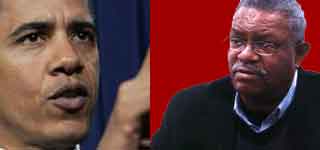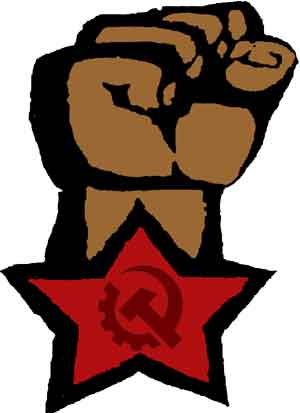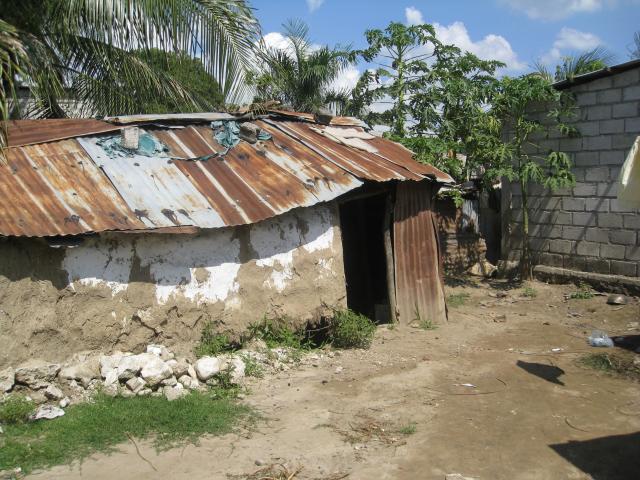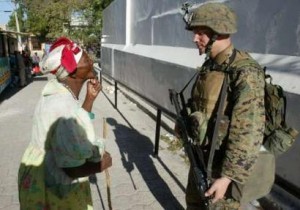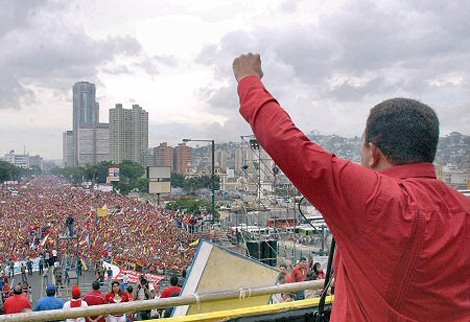
By Arthur Shaw via VHeadline
An alliance of the Venezuela bourgeoisie and US imperialists unreasonably expects to score big in the upcoming legislative elections in September this year. This alliance, sometimes called the ‘opposition,’� historically does better in legislative elections than in elections for posts in the executive branch of the State, e.g. President, Governors, Mayors, etc. In the 2005 legislative elections, however, the alliance of the bourgeoisie and imperialists ran and hid from a electoral confrontation against the powerful revolutionary forces over the seats in the National Assembly, the supreme lawmaking body in Venezuela . In other words, in 2005, the opposition boycotted the legislative elections.
If the opposition doesn’t score big in the September races for the National Assembly, the defeat will likely be a crushing blow to the alliance of the Venezuelan bourgeoisie and US imperialists against the revolutionary sector of the Venezuelan working class. This time, the opposition can’t evade a defeat by running and hiding or boycotting the elections.
A defeat in September will also speed up the shift toward violence in the opposition’s strategy and tactics.
The US imperialist military build-up in neighboring Colombia shows that imperialists are already losing confidence in their ability and in the ability of their pro-imperialist quisling forces in Venezuela to beat the revolutionary and liberal workers of Venezuela in any kind of electoral showdown. To guarantee that most of the corruption from the imperialists regime in Washington continues to go to the political side of the opposition, the Venezuelan bourgeoisie intends to work hard and go all out to score big in September. If the ‘peaceful’ side of the opposition doesn’t score big in September, the imperialists will likely divert more of the money they now use to corrupt bourgeois parties, civil society, and the State in Venezuela , to the violent or terrorist side of the opposition. The violent side of the opposition includes Colombian and Venezuelan terrorists now operating in Venezuela, degenerate and morally filthy US mercenaries, Venezuelans now undergoing terrorist and genocide training in Colombia and in USA, and utterly savage and barbaric US troops at US bases in Colombia and in the region. Again, the lost of corruption money from the US National Endowment for Democracy, US Agency for International Development, CIA, DIA, FBI, US State Department, and a number of pro-imperialist foundations and think-tanks by elements and sectors of the Venezuelan bourgeoisie on the peaceful side of the opposition could cause a total financial collapse of these bourgeois elements and sectors. These elements and sectors of the Venezuelan bourgeoisie depend on corruption as their main source of income for personal consumption.
THE CORRUPTION OF THE VENEZUELAN OPPOSITION
Based on documents obtained from the bourgeois US regime under the Freedom of Information Act, prominent revolutionary writer Eva Golinger estimates that something like $50 million in corruption money has flowed during the last seven years out of the US imperial treasury through various conduits and finally into the pockets and bank accounts of the corrupt opposition in Venezuela. Whether the opposition scores big in September will depend, in large part, on how much corruption the opposition gets out of Washington . Golinger estimates that the imperialists spent about $4.7 million to corrupt the Nov. 2008 regional elections in Venezuela . So, something like $4.7 million will likely serve as the floor or the minimum amount of corruption that the opposition will get for 2010 legislative races, because the National Assembly races are a lot more important than the regional races. Most likely, the opposition in Venezuela will get something like $9 or $10 million from the US imperialists to corrupt the 2010 legislative elections.
If any US citizen or US resident accepted ‘anything of value’ [not to mention $9 or $10 million] from a foreign government, like the Venezuelan Government or its agents, ‘in connection with’ any US election [federal, state, county, or municipal], this US citizen or resident could get up to 20 years in a US prison and a fine up to $250,000 under the Federal Elections Campaign Act (FECA), at 2 USC 441e. When one asks US reactionaries why they oppose corruption of the US government and US politics by foreign sources, while the imperialist regime in Washington promotes corruption in Venezuela and in other countries, these two-faced and sanctimonious US reactionaries say they can corrupt others and, at the same time, resist corruption from others, because something named ‘God’ blesses America.
Although corruption is a necessary condition for an opposition big score in September, corruption isn’t a sufficient condition for a big score. In other words, corruption, alone, no matter how lavish, can’t defeat revolutionary sector of the Venezuelan working class. To score big, the opposition must also work hard and adopt an ‘effective’ strategy and tactics in legislative races.
HARD WORK
With the bourgeoisie and increasingly with the proletariat, a great expenditure of energy for a prolong period is not necessarily hard work, because the idea of work often implies a smart expenditure of energy or, at least, an expenditure at or above the prevailing rate of productivity of labor in field in which the expenditure occurs. An expenditure below the rate of labor productivity is wasted labor and worthless in the market place. In other words, if the expenditure isn’t even work, then the expenditure can’t be hard work. In ‘Capital,’ Marx calls this idea ‘socially necessary labor.’
One of the main goals of US National Endowment for Democracy (NED) is to raise the level of productivity of reactionary electoral labor to the world prevailing rate of productivity. To this end, NED runs a series of institutes the IRI for Venezuelan reactionaries, the IDI for Venezuelan moderates and liberals, the ACILS for reactionaries, moderates, and liberals in the labor movement � which train pro-imperialist flunkies of Venezuelan origin at facilities in Venezuela , USA , all over Latin America, EU, and Israel in the mechanics of electoral struggle. These NED institutes have trained, in the class room, thousands of highly competent reactionaries during the last 15 years and arranged to provide them with electoral experience, in the field, in Venezuela , USA, and all over Latin America .
- Although it is distasteful to admit it, we must make no mistake about this question, these lousy reactionaries or flunkies nurtured by NED are very good at their art.
Until about 2006, NED recruited most of the flunkies for training in its electoral institutes from the ranks of the main bourgeois parties and from a reactionary labor federation in Venezuela .
The main bourgeois parties were:
(1) Democratic Action (AD) is reactionary bourgeois in ideology although occasionally it claims to be social democratic. The AD is the biggest member of the group of clowns that make up the opposition. Henry Ramos leads the AD which is deeply fragmented over its cut of corruption from US imperialists. Because of its size and influence, AD demands most of the corruption money. But the other bourgeois parties and US imperialists refuse to yield to AD demands.
(2) New Times (UNT) is reactionary bourgeois in ideology and disputes AD’s claim that AD is the biggest clown of the opposition. Omar Barboza nominally leads the UNT as a figurehead for Manuel Rosales, a fugitive from justice who hides in Lima , Peru , after accusations that Rosales took or stole $8 million in corruption money from US imperialists during 2002-2004. Largely, AD and UNT see the 2010 legislative elections as a contest between AD and UNT not against the revolutionary forces behind Hugo Chavez to establish, once and for all, whether ADD or UNT is the biggest clown of the opposition. This determination has huge financial consequences.
(3) Social Christians ( COPEI), is ultra-reactionary bourgeois in ideology and was once the second biggest clown in bourgeois politics before the emergence of UNT. Luis Ignacio Planas leads COPEI and often complains that COPEI doesn’t get a fair share of corruption from US imperialists. Ignacio Planas tends to blame AD and UNT equally for robbing COPEI of its just cut of corruption.
(4) Justice First, reactionary bourgeois in ideology, used to present itself as the professional youth of Venezuela . Now, ten years after the birth of Justice First, the NED-created party is only a part of the professional middle-aged of Venezuela . Julio Borges leads the Justice First and despises the UNT for undermining his 2006 unofficial primary race for the opposition presidential nomination. Borges says his internal polls and other polls by the opposition forces showed in 2006 that he would have far exceeded the paltry 37% that Manuel Rosales, the UNT candidate, got in the 2006 presidential race against Hugo Chavez who got a whopping 63%.
(5) Social Democrats (PODEMOS), bourgeois liberal in ideology and a renegade from the revolutionary process, wants to run for seats in some promising middle class districts in the September. But the opposition, especially Justice First, claims this is divisive and demands PODEMOS in the name of ‘unity’ run in revolutionary working class districts where PODEMOS can’t win. A big chunk of PODEMOS broke away in Jan. 2009 and the chunk re-constituted itself as the Humanist Popular Front, another bourgeois liberal outfit. The Humanist Popular Front stole five of PODEMOS National Assembly deputies. In the legislative elections of 2005, PODEMOS won 15 seats in the National Assembly, the second largest party caucus in the legislature. Turmoil within PODEMOS has since reduced the number of PODEMOS seats to seven. Ismael Garcia ‘leads’ PODEMOS and everything he touches instantly turns into either ashes or manure usually, the latter.
In addition to the five clowns of the opposition, mentioned just above, are about 30 riff-raff bourgeois parties of no importance.
Until late 2006, NED (US National Endowment for Democracy) recruited flunkies for its electoral institutes mostly from these organizations. NED had to negotiate compensation issues with the leaders of the bourgeois parties to get and to exploit the electoral labor of these people. But with the emergence of the reactionary middle class college student movement in early in 2007, NED reached out to the largely unaffiliated middle class college students, trained hundreds of them, and obtained direct control over them without the bourgeois parties as intermediaries. There is a degree of antagonism or competition between the old hands of the bourgeois parties who view the new electoral operatives from the reactionary middle class college student movement as cheap, low class streetwalkers, willing to work for almost nothing or for ‘coolie’ wages. The imperialists must unite these two groups of campaign workers into a united force.
- There is a question about how hard either of these groups of electoral operatives can work if they spend their time urinating into each other’s bowl of soup.
‘EFFECTIVE’ STRATEGY AND TACTICS
(1) Ideally, the peaceful form of political struggle usually consists of four steps talks (meetings, conferences, lectures, seminars, discussions, etc.), walks (marches, demonstrations, parades, protests, picketing, etc.), campaign (fundraising, targeting, voter contact, free media, paid media, candidate activity, opposition research, volunteers, etc.) and vote to win or hold state power. In September, the vote is to hold a certain amount of state power.
(2) Ideally, the armed form of political struggle also usually consists of four steps � talks, walks, fight, annd finally seize state power or hold it.
The political form of the class struggle of the Venezuelan bourgeoisie and US imperialists against the revolutionary part of the Venezuelan working class is evolving from (1), the peaceful form, to a combination of (1) and (2). Specifically, (2) is the adoption of terrorist tactics by the opposition to intimidate the Venezuelan people into abandoning the revolution. In other words, imperial administrative control of the opposition is passing from NED and USAID to CIA, DOD, DIA, and US mercenary firms.
By ‘terrorist tactics’ we mean, among other things, random murder of members of the Venezuela working class and targeted murders of revolutionary supporters by the armed forces of the opposition. In other words, murder in this context is the deliberate killing of Venezuelans by the opposition, without justification or provocation for mere political ends and for corruption money and this bestiality from the opposition is already happening in Venezuela on a grand scale. The US military build-up in nearby Colombia promises an escalation in the use of murder by the opposition as a political tool and as a means of earning corruption money. ‘Terrorist tactics’ also include something called assault which is targeted at revolutionary supporters, voters and operatives. In order that there no confusion about what we mean by the ‘terrorist tactics ‘ of the opposition, we define assault as intentionally causing bodily injury to revolutionary supporters or threatening to cause such bodily injury by the scum, trash, and filth that works with opposition. We hope this clearly expresses our point about the terrorist opposition.
Many supporters of the bloodthirsty opposition concede that terrorist tactics are already in broad use in Venezuela by Colombian and Venezuelan terrorists with organizational and financial ties to the opposition. But these opposition supporters argue that humanity can’t properly acknowledge a story as real until the bourgeois media prominently and continuously report the story. These opposition supporters smugly point out that the bourgeois media don’t as yet connect the terrorist killings/assaults in Venezuela to the opposition, the alliance between the Venezuelan bourgeoisie and US imperialists. So, these opposition supporters insist that humanity can’t properly acknowledge as real the transparent connection between the terrorist forces and the opposition.
- In other words, the bourgeois media, the opposition alleges, not only report but also create reality.
In addition to the dozen or so traditional branches of an electoral campaign, the revolutionaries, this time, should introduce a new one, perhaps called ‘campaign security.’ For without extraordinary carnage and mayhem, it will very hard for the opposition to score big in September.
What is a big score for the opposition?
Most likely, we should talk about a big score and a ‘real big score.’ A big score is the opposition winning more than one third of the 167 seats in the National Assembly because the revolutionaries need two thirds of the 167 seats to amend the organic law of Venezuela which is second only to the Venezuelan Constitution in legal authority. A ‘real big score’ is the opposition winning 51% of the National Assembly seats. This ‘real big score’ would be a disaster for the Revolution but the Revolution could still sustain itself. It is most unlikely however that the opposition will score either real big or big, as defined above.
Again, if the opposition gets more than a third of the seats in September, the victory for the opposition is big. But if the opposition gets over half, then its victory is real big. Conversely, if the revolution gets over half of the seats, its victory is big. But if the revolution gets over two-thirds of the seats, then its victory is real big.
In addition to terrorism, the opposition will surely used its traditional strategies and tactics namely, working for a big reactionary turnout on election day and working for a big revolutionary and liberal abstention. NED-trained electoral operatives are generally very good at get-out-the-vote operations (GOTV) and the Venezuelan flunkies of NED are among the best anywhere. The main issue with the reactionary turnout is whether the old hands of the above-mentioned bourgeois parties and the fresh reactionary middle class college students or former students, directly under the command of NED, will urinate in each others’ bowls of soup. Presently, the students or former students make no secret of their contempt for both the old hands and for the leaders of the bourgeois parties.
The revolutionary victory in the electoral/legislative struggle over the constitutional amendment in February. 2009 shows that the Revolution has recovered from the shocking 45% abstention that produced a huge revolutionary defeat in the struggle over the constitutional reform in December 2007. In Feb. 2009, the abstention was only 35%, down 10 points from December 2007. With a 35% abstention in September 2010, the revolution can easily win a simple majority. What’�s more, if the revolution can keep the abstention down at 35%, the revolution may win a super 66% majority, needed to amend the organic law. But the geographical configuration of a 65% turnout and a 35% abstention will prove decisive in winning a two thirds majority. If the geographical configuration is correct, it is possible to win 66% of the seats with less than 66% of the vote.
In respect to the geographical configuration, Ismael Garcia, the PODEMOS renegade from the revolutionary process, falsely accuses the National Electoral Council of gerrymandering in seven of Venezuela ‘s 23 states and its two largest cities, Caracas and Maracaibo . Garcia says the redrawn district lines favor revolutionary candidates in September. As required by the Venezuelan Election Code, the National Electoral Council redrew some district lines in the seven states and some district lines in two cities to reflect increases and decreases in district populations. Three of the seven states where districts were redrawn are already revolutionary strongholds. So, gerrymandering is clearly not the motive behind the redrawing. One of the two cities where districts were redrawn is a long time reactionary stronghold. So, the new district lines are unlikely to change the outcome in September. When the Venezuelan Election Code was amended last year to require redrawing of district lines to reflect the current demographic situation of the district, the bourgeois media in neither Venezuela nor the USA protested the introduction and enactment of this amendment to the election code. As yet, neither the bourgeois media nor the opposition have challenged the statistical finding that significant demographic changes have taken place in the districts that were redrawn. As yet, neither the bourgeois media nor the opposition have challenged the premise that failure to redraw district lines after significant changes in the demographic situation is itself a form of gerrymandering.
CONCLUSION
The odds that the revolutionary forces will win a two-thirds majority in the National Assembly is only ‘likely,’ but not by any means ‘very likely.’ And, as such, the outcome of the September races lies very much in the sphere of contingency. Most likely, only a major blunder by the opposition equal to the 2005 boycott blunder can lift the odds of two-thirds revolutionary majority from a mere ‘likely’ to ‘very likely.’
So far, the principal issues of the opposition are water, lights, consumer prices and violence. Violence is the opposition best issue. Opposition believes the greater the violence, the better the odds for a reactionary win.
In all of the more or less proletarian parties the PSUV, the PPT, and PCV, there are misplaced working class liberals and misplaced working class reactionaries sobbing that the current carnage and mayhem in Venezuela are spontaneous phenomena of capitalism, not the organized phenomena of capitalism, that is, of US imperialism and Venezuelan bourgeoisie, the opposition. Some revolutionaries believe the errors of these working class liberals and reactionaries because of the tears and emotion that gush out of these misfits as they sob.
A revolution that can’t defend itself is worthless, Lenin said. If the sobbing misfits are proved correct about their idea of the spontaneity of the violence, then no harm will result if revolutionary forces prepare ubiquitously to defend the people and the process, in a electoral context.
On the other hand, if the misfits are wrong and the violence is organized by the rotten opposition, then defensive preparations of the whole proletariat, in the electoral context, will proved invaluable as the amount of opposition-sponsored violence rises.
 Communist Party USA Convention Call
Communist Party USA Convention Call



